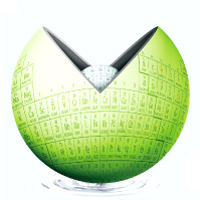
Published for geochemistry community from Geochemical Society of Japan.
Mantle-derived arc related mafic enclaves and host orthogneiss from the Shyok Suture Zone of NE Ladakh, India: An evidence of magma-mixing
Geochemical Journal, Vol. 47, No. 1, P. 1-19, 2013
ABSTRACT
The Shyok valley in the northern Ladakh is a linear NW-SE trending suture zone (Shyok Suture Zone) and separates two distinct terranes, the southern continental margin of Eurasian Plate to north, and Ladakh magmatic arc to south. The crustal growth in the Shyok Suture Zone (SSZ) can be explained by two stage melting process involving the generation of orthogneiss (OG) with mafic enclaves (ME) (pre-collision), and temporal evolution towards increasingly more evolved felsic magmas during reworking processes (post-collision). In this paper, the geochemistry of various ME and host OG that fall within the Shyok-Darbuk corridor of the suture zone are discussed. The field, petrographic and geochemical data suggest that the ME and host OG are genetically related. The ME has formed by low degree of partial melting of a garnet-bearing source or from the partial melting of a basaltic source with a clinopyroxene-garnet eclogite as residue. The LILE and LREE enrichment of ME have been influenced by mantle-magma interaction during the passage of the hydrous primary arc-magma through the overlying lithosphere. The likely interpretation for the genetic linkage of ME and host OG is explained through the mixing of coeval mafic (enclave) and felsic melts, resulting in hybrid magma. Besides, several geochemical lines of evidence suggest that fractional crystallization of the resultant hybrid magma had played a complementary role in the evolution of these rocks.KEYWORDS
mafic enclaves (ME), orthogneiss (OG), magma-mixing, Shyok Suture Zone, NE Ladakh- Published : 2013-02-20
- Released on J-STAGE : 2013/11/23
- Received : 2012/05/13
- Accepted : 2012/11/02
- DOI : https://doi.org/10.2343/geochemj.2.0236
- J-STAGE URL : https://www.jstage.jst.go.jp/article/geochemj/47/1/47_2.0236/_article/-char/ja
- J-Online ISSN: 1880-5973
- Print ISSN : 0016-7002
- ISSN-L : 0016-7002
All Issues
- Vol.60, 2026
- Vol.59, 2025
- Vol.58, 2024
- Vol.57, 2023
- Vol.56, 2022
- Vol.55, 2021
- Vol.54, 2020
- Vol.53, 2019
- Vol.52, 2018
- Vol.51, 2017
- Vol.50, 2016
- Vol.49, 2015
- Vol.48, 2014
- Vol.47, 2013
- Vol.46, 2012
- Vol.45, 2011
- Vol.44, 2010
- Vol.43, 2009
- Vol.42, 2008
- Vol.41, 2007
- Vol.40, 2006
- Vol.39, 2005
- Vol.38, 2004
- Vol.37, 2003
- Vol.36, 2002
- Vol.35, 2001
- Vol.34, 2000
- Vol.33, 1999
- Vol.32, 1998
- Vol.31, 1997
- Vol.30, 1996
- Vol.29, 1995
- Vol.28, 1994
- Vol.27, 1993
- Vol.26, 1992
- Vol.25, 1991
- Vol.24, 1990
- Vol.23, 1989
- Vol.22, 1988
- Vol.21, 1987
- Vol.20, 1986
- Vol.19, 1985-1986
- Vol.18, 1984
- Vol.17, 1983
- Vol.16, 1982
- Vol.15, 1981
- Vol.14, 1980
- Vol.13, 1979
- Vol.12, 1978
- Vol.11, 1977
- Vol.10, 1976
- Vol.9, 1975
- Vol.8, 1974
- Vol.7, 1973
- Vol.6, 1972-1973
- Vol.5, 1971
- Vol.4, 1970-1971
- Vol.3, 1969-1970
- Vol.2, 1968
- Vol.1, 1966-1967
Current Issue:
Stats:
Impact Factor: 1.6 (2024)
Submission to final decision: 9.6 weeks (2022)




